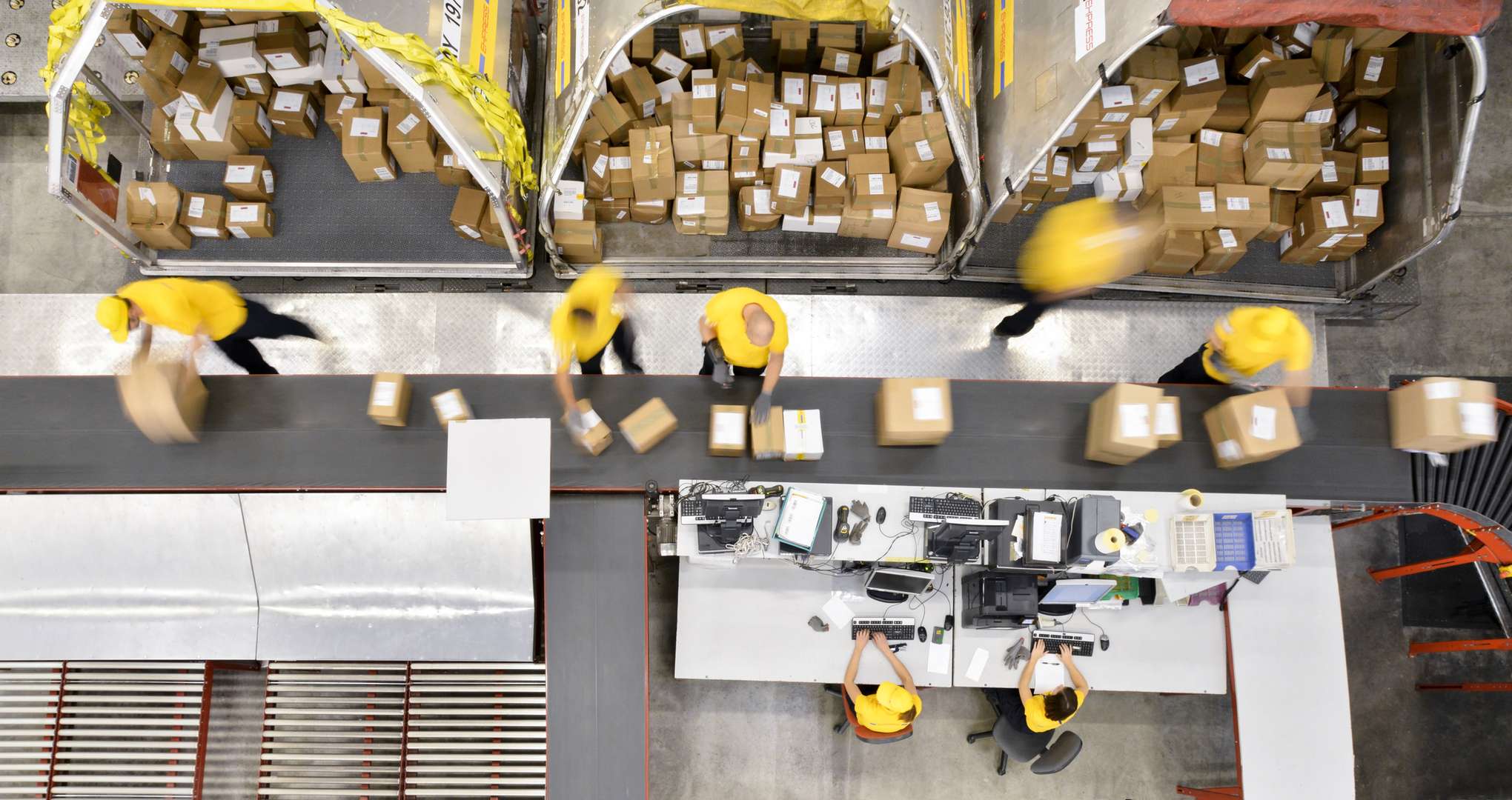In the ever-evolving world of eCommerce, Amazon remains a behemoth. With millions of products and customers worldwide, selling on the platform can be incredibly lucrative. However, to succeed in this competitive landscape, efficient Amazon order fulfillment is paramount. This starts by making a critical decision FBA VS FBM: should you opt for Fulfillment by Amazon (FBA) or Merchant Fulfilled Network (MFN) to meet your eCommerce needs?
Whether you’re a budding eCommerce entrepreneur or a seasoned seller, understanding the nuances of FBA vs FBM can make all the difference in optimizing your Amazon operations.
Let’s get started!
What is Amazon Fulfillment?
Amazon Fulfillment is the backbone of the eCommerce giant’s operation. It’s the system responsible for storing, packing, and shipping products to customers. Essentially, Amazon Fulfillment allows sellers to leverage Amazon’s extensive distribution network and customer reach. This service takes the burden of logistics off the seller’s shoulders, allowing them to focus on growing their business.
Logistics and Amazon
When it comes to Amazon Fulfillment, there are two main approaches: Fulfillment by Amazon (FBA) and Merchant Fulfilled Network (MFN) also known as Fulfilled by Merchant (FBM).
Let’s delve into each of them:
1. Amazon FBA
Fulfillment by Amazon (FBA) is a program where sellers store their products in Amazon’s fulfillment centers (warehouses). This means the products are shipped to an Amazon warehouse (which is sometimes not a warehouse owned by Amazon but rather outsourced by Amazon to a third-party logistics partner). Amazon handles everything from warehousing and order picking to packing and shipping.
2. MFN/FBM (D2C)
Merchant Fulfilled Network (MFN) of Fulfilled by Merchant (FBM), also known as Fulfillment by Seller, is the alternative to FBA. In this model, you are responsible for storing, picking, packing, and shipping your products directly to customers. In simple words, you never have to ship the products to an Amazon FBA warehouse, instead, you will list the product on Amazon and fulfill the orders yourself. Either you can fulfill orders yourself or hire a third-party logistics partner (3PL) to fulfill the orders.
What are Third-Party Logistics (3PLS)?

Third-party logistics (3PL) or eCommerce fulfillment providers are third-party companies that take responsibility for various logistics and supply chain management functions. Third-party logistics offers a wide range of services to help companies streamline their supply chain operations and improve efficiency. From order fulfillment to inventory management or returns management, 3PLs do it all for your eCommerce fulfillment needs.
FBA Vs FBM: Why should you choose MFN/FBM over FBA?
- Control Over Inventory: Some sellers prefer to maintain complete control over their inventory. FBM allows for more flexibility in managing stock levels and product variations than FBA.
- Unique or Handmade Products: Sellers with unique, handmade, or personalized items often choose FBM/MFN since these products may not fit into Amazon’s FBA model.
- Fulfillment Flexibility: FBM/MFN allows sellers to fulfill orders through various carriers, potentially offering merchants more shipping options.
- Custom Packaging: Amazon FBA orders are shipped in an Amazon-branded box, but FBM orders can be shipped in a non-branded box or a box with the seller’s brand. 3PLs like ShipTop can create beautiful packaging for each order (e.g. add branded tissue paper, promotional inserts/flyers, or custom-branded tapes). So you can improve the customer shopping experience.
- Product Protection: Some products are high-value and a trusted 3PL can handle these products and not damage them. Amazon FBA warehouses are very large warehouses and they can tend to not care for products as much, so if you are a seller of let’s say, Jewelry, you want to make sure the products are handled with care and they are not lost (it can happen at Amazon).
- Dedicated Customer Service: 3PLs like ShipTop are very attentive to clients. We answer questions by phone, email, or scheduled meetings. When working with Amazon, you will have to create a support case and wait a long time for a response or resolution. And even after waiting a long time, you may not get to a resolution. A merchant may choose to work with a 3PL to control their fulfillment and warehousing needs better.
- Cost Efficiency: For sellers with tight profit margins, FBM/MFN can be more cost-effective. FBA fees, storage costs, and fulfillment fees can add up, cutting into profits.
FBA VS FBM: Is 3PL the Right Solution for Amazon Fulfillment?
While it might seem like an additional expense, outsourcing Amazon fulfillment can offer numerous benefits that can ultimately lead to business growth and success.
Here’s why 3PL is the right solution for your eCommerce business:
1. Scalability
The eCommerce businesses are often prone to seasonal fluctuations and sudden spikes in demand. Outsourcing Amazon fulfillment offers you the flexibility to scale your operations up or down as needed. Whether it’s handling a surge in holiday orders or managing day-to-day fluctuations, 3PLs can quickly adjust your resources and space, ensuring that you don’t have to invest in excess infrastructure or worry about inadequate capacity during peak seasons.
2. Time and Focus
Managing order fulfillment is a time-consuming task that can divert your attention away from core activities like product development, marketing, and strategic planning. Choosing the right eCommerce fulfillment partner can free up your valuable time to focus on growing your business and developing new strategies for success.
3. Reduced Shipping Costs
Fulfillment providers often have negotiated shipping rates with carriers due to their high shipping volumes. These reduced shipping costs can translate into savings for you, which can either be passed on to customers to remain competitive or added to the company’s bottom line.
4. Global Expansion
Outsourcing Amazon fulfillment can open doors to global markets. With strategically located fulfillment centers, you can efficiently reach international customers, overcoming many of the logistical challenges associated with cross-border selling.
5. Cost Efficiency
One of the primary benefits of outsourcing Amazon fulfillment is cost efficiency. Partnering with the right Amazon Fulfillment partner gives you access to advanced technology and optimized processes. This allows you to handle orders more efficiently and at a lower cost per unit than most individual businesses could achieve on their own. By outsourcing, businesses like yours can reduce labor, storage, and shipping expenses, ultimately leading to improved profit margins.
Also Read: Accelerate Your Growth with Reliable Fulfillment You Can Trust
However, before taking the plunge and partnering with a Third-Party Logistics (3PL) provider, it’s crucial to ask yourself a series of key questions:
- Does my order volume justify the monthly fees associated with a 3PL service?
- Will entrusting the labor-intensive tasks of picking, packing, shipping, and managing return logistics be a substantial advantage for my business?
- Does the 3PL provider have experience working with brands and products similar to mine?
- Do they possess a deep understanding of my target market?
- Are the 3PL’s existing distribution channels aligned with the sales channels you intend to leverage?
- Do they offer software and technology tools that seamlessly integrate with your business needs?
Why Partner with ShipTOP for Reliable Amazon Fulfillment Services?
Answering all the above-mentioned questions as “Yes” is not enough as to why you should partner with ShipTop. Here’s how it is a strategic move for several reasons:
- Expertise: Shiptop specializes in e-commerce fulfillment, ensuring that your products are handled with care and efficiency.
- Scalability: As your business grows, ShipTop can scale with you, providing the infrastructure and expertise needed for expansion.
- Cost Savings: We offer competitive pricing structures, helping you reduce operational costs and increase profitability.
- No limit on Shipping: Unlike Amazon which may put a limit on how much you can ship to their warehouse, ShipTop can store any number of products. For example, you produce 50,000 units of product A, but Amazon will allow them only to ship 1,000 units to Amazon FBA warehouses. You can ship all of your inventory to us and we will drip feed to Amazon, never exceeding the 1000 inventory capacity limit.
- Label your Products: Our team will label each unit of product and then drip feed to Amazon FBA.
- Product Quality Check: ShipTop ensures quality inspection before shipping to Amazon. Goods produced by the manufacturer are shipped to our warehouse and we do a quality check. As your logistics partner, we ensure your products are in good condition before shipping to Amazon FBA.
- Send Inventory in Testing Phase: You are still in the phase of testing your new product on Amazon, but shipping all your inventory directly to Amazon can cost you several bucks.
However, you can send your inventory to us and we’ll manage sending a portion to Amazon until they gain confidence in its performance. It’s important because if the product doesn’t do well on Amazon or gets removed for any reason, you have to face significant costs, like a removal fee of $0.50 per unit, which could total $5,000 for 10,000 units, along with shipping and storage expenses.
While Amazon Fulfillment offers various advantages, the choice between FBA vs FBM/MFN depends on your unique business goals and products. Partnering with a trusted 3PL like ShipTop can provide the support and expertise needed to streamline your fulfillment processes and achieve success in the competitive world of Amazon selling.
Contact us today to fulfill your Amazon Fulfillment needs.




